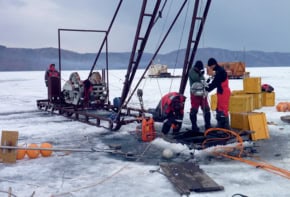Achintya Rao reviews Unfinished Nature: Particle Physics at CERN by Arpita Roy

When I was asked to review Unfinished Nature: Particle Physics at CERN, a new ethnography of CERN by Arpita Roy, an anthropologist at the University of California Berkeley, US, I was excited. Having recently completed a PhD in science communication where I studied the researchers at CERN – albeit from a very different, quantitative‐heavy, perspective – the subject is close to my heart.
Roy spent two and a half years doing fieldwork at CERN, around the time of the discovery of the Higgs boson in 2012. The book examines this event through an anthropological lens, asking questions such as how are scientific advances made and how do scientists understand their work? Unfortunately, although I read many books and papers of a similar nature for my doctoral studies, I struggled with Unfinished Nature.
A good book makes you pause to reflect. You may find yourself enlightened by the author’s perspectives or disagree with their arguments, but comprehension is key in either case. A book that has you stumbling through the pages without clarity, re-reading sentences over and over again in an effort to make sense of them, is frustrating. I may lack the expertise to appreciate the finer points of the subject, but I struggled despite repeated, earnest attempts to read the book with the care and attention the topic deserves.
Take the following snippet from the first page of the introduction, which sets the tone for what is to come: “But what has been lost to sight is the elucidation of how a science like particle physics may incorporate elements into its domain beyond what its epistemic assumption would lead us to expect, which deepens the mystery of what logic of classification it obeys. It is far from easy, however, to explicate the notion of classification, if only for the reason that it engenders notions of system, category, or context whose lucidity is hard to pinpoint in the scientific realm.” While I eventually understood (or at least think I did) what Roy is trying to say, the phrasing is unnecessarily convoluted.
None of this is criticism of Roy as a researcher but reflects the seemingly intentionally confusing language that academics – and my fellow social scientists in particular – are expected to use, despite increased calls to make research more accessible to those without specialist knowledge.
The ideas and stories Roy covers are no doubt interesting, even if the book itself isn’t an easy read. Unfinished Nature is more suited to the invested social scientist familiar with the particular flavour of academic prose adopted by anthropologists than physicists or physics enthusiasts indulging a more superficial interest in the lives of researchers at CERN.
- 2024 Columbia University Press 296pp £30.00



